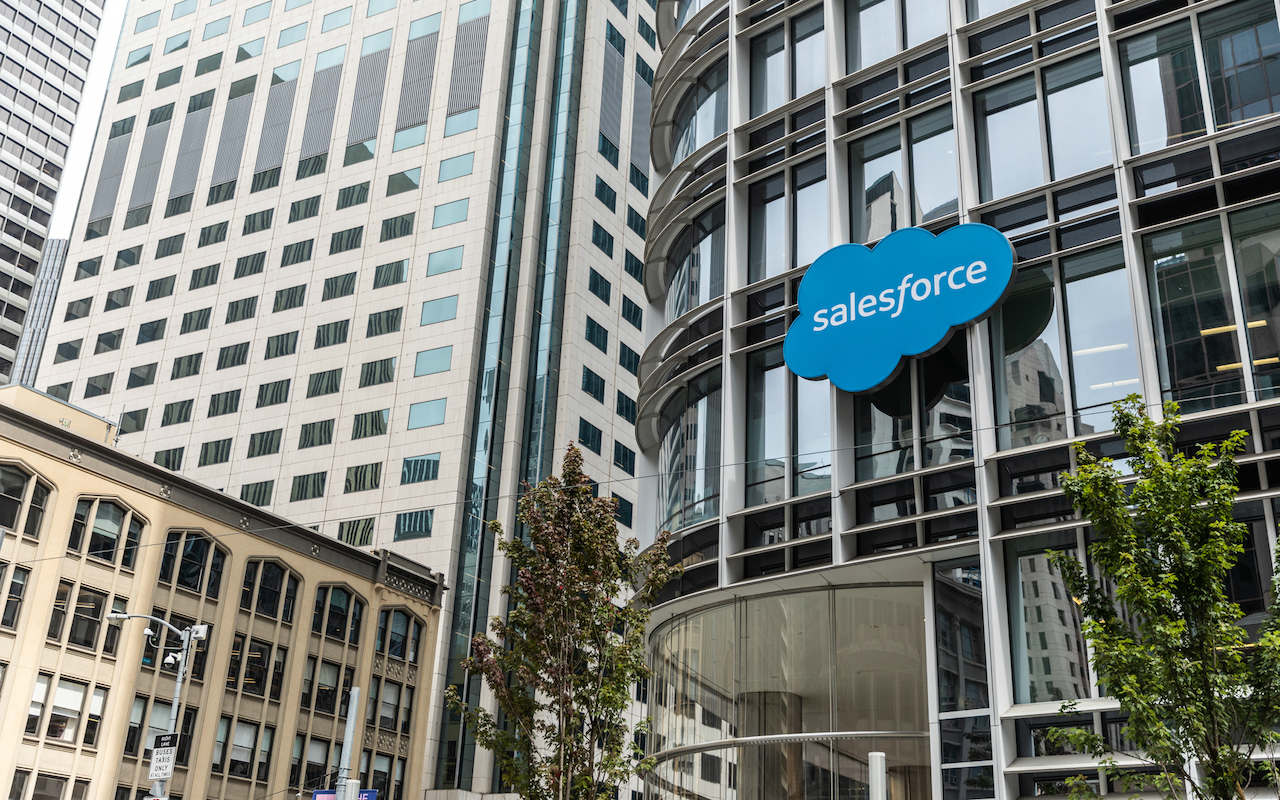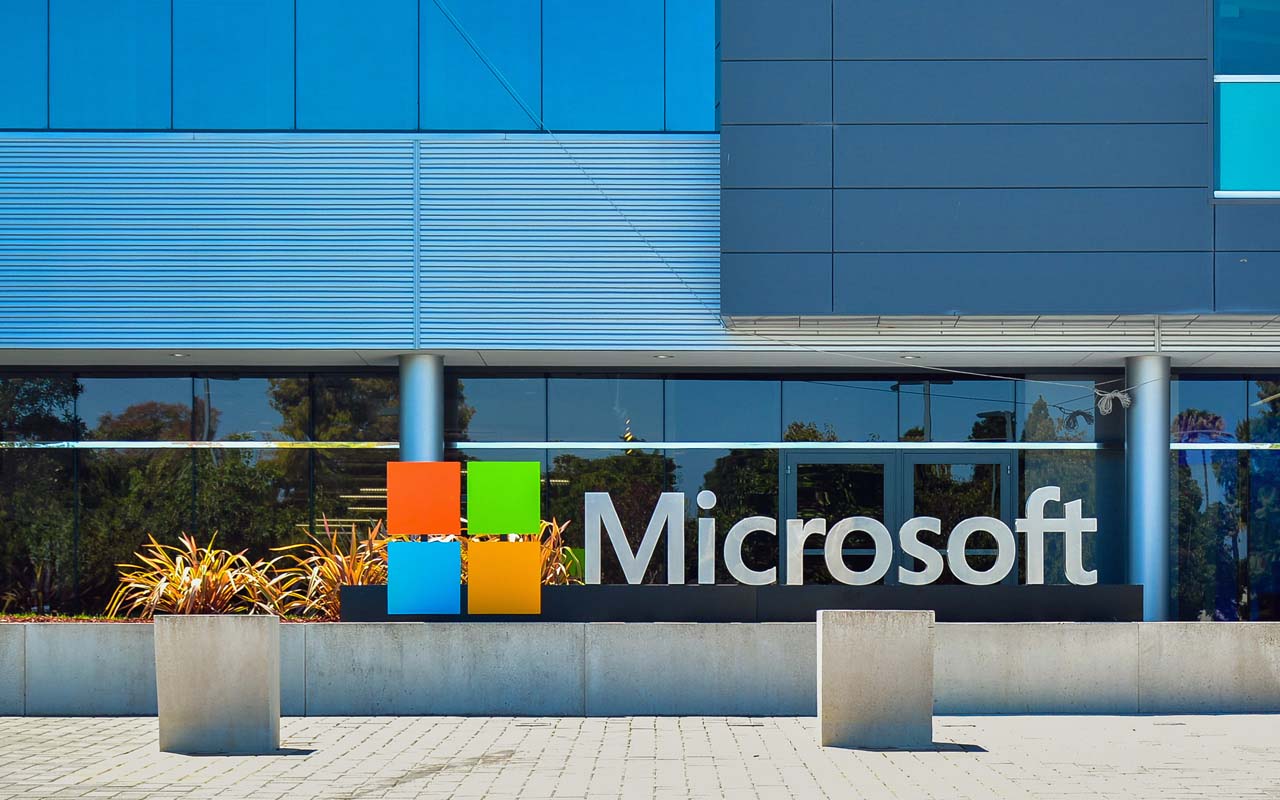6 'Smart Money' Tech Stocks to Buy
Hedge funds are where millionaires and even billionaires funnel their money to find ways to outperform the market.


Profit and prosper with the best of Kiplinger's advice on investing, taxes, retirement, personal finance and much more. Delivered daily. Enter your email in the box and click Sign Me Up.
You are now subscribed
Your newsletter sign-up was successful
Want to add more newsletters?

Delivered daily
Kiplinger Today
Profit and prosper with the best of Kiplinger's advice on investing, taxes, retirement, personal finance and much more delivered daily. Smart money moves start here.

Sent five days a week
Kiplinger A Step Ahead
Get practical help to make better financial decisions in your everyday life, from spending to savings on top deals.

Delivered daily
Kiplinger Closing Bell
Get today's biggest financial and investing headlines delivered to your inbox every day the U.S. stock market is open.

Sent twice a week
Kiplinger Adviser Intel
Financial pros across the country share best practices and fresh tactics to preserve and grow your wealth.

Delivered weekly
Kiplinger Tax Tips
Trim your federal and state tax bills with practical tax-planning and tax-cutting strategies.

Sent twice a week
Kiplinger Retirement Tips
Your twice-a-week guide to planning and enjoying a financially secure and richly rewarding retirement

Sent bimonthly.
Kiplinger Adviser Angle
Insights for advisers, wealth managers and other financial professionals.

Sent twice a week
Kiplinger Investing Weekly
Your twice-a-week roundup of promising stocks, funds, companies and industries you should consider, ones you should avoid, and why.

Sent weekly for six weeks
Kiplinger Invest for Retirement
Your step-by-step six-part series on how to invest for retirement, from devising a successful strategy to exactly which investments to choose.
Hedge funds are where millionaires and even billionaires funnel their money to find ways to outperform the market. They don’t always live up to the hype, and they’re constantly derided as too expensive. But they command more than $3 trillion in assets, possess a great deal of institutional brainpower and sometimes do produce the returns they promise. So it’s smart to keep watch over the so-called “smart money” when evaluating stocks to buy.
And right now, they love tech stocks.
WalletHub keeps tabs on hedge funds’ quarterly buying and selling actions. They comb through regulatory positions of more than 400 hedge funds, tally their positions in individual stocks, then rank the stocks by their total holdings value.
More than 20% of hedge funds’ top 25 positions are in tech stocks at the moment – and that figure actually widens if you consider all of the tech-esque stocks that fall into other sectors. Amazon.com (AMZN), for instance, shares space with mall retailers and restaurants in the consumer discretionary sector. Other stocks such as Facebook (FB), Netflix (NFLX) and Google parent Alphabet (GOOGL) are part of the new communication services sector.
Here are the six pure-play tech stocks that the hedge funds love most. Each of these companies features a can’t-miss combination of bulletproof balance sheets and strong growth potential.
Data is as of April 25 unless otherwise noted. Companies are listed in reverse order of popularity with hedge funds, according to WalletHub. Dividend yields are calculated by annualizing the most recent quarterly payout and dividing by the share price. Analysts’ ratings provided by FactSet via WSJ.com.

Salesforce.com
- Market value: $126.4 billion
- Dividend yield: N/A
- Analysts’ opinion: 39 strong buy, 4 buy, 3 hold, 0 sell, 0 strong sell
- Salesforce.com (CRM, $163.09) has an apropos ticker given that it’s the biggest name in customer relationship management (CRM). The company sells subscriptions to web-based applications to help companies analyze consumer data, manage sales, improve customer loyalty … and ultimately, be more profitable.
And Salesforce.com was delivering software-as-a-service long before cloud-based services exploded in popularity.
Jefferies doesn’t just view CRM as best in class among other tech stocks, but across the entire market. Analyst John DiFucci recently reiterated his “Buy” call, saying it’s still a top large-cap pick following the company’s $300 million buyout of California public benefit corporation Salesforce.org.
Even during a bout of weakness earlier this year, Goldman Sachs analyst Heather Bellini told CNBC, “We continue to see CRM as one of the best positioned companies in software.” Now, Salesforce.com is retesting all-time highs.
Wall Street is wildly bullish on the stock, too. Forty-three of 46 covering analysts rate it a “Buy” or “Strong Buy,” and the analysts community expects CRM to grow earnings at more than 28% annually on average over the next half-decade.

Adobe
- Market value: $277.66 billion
- Dividend yield: N/A
- Analysts’ opinion: 17 strong buy, 2 buy, 13 hold, 0 sell, 0 strong sell
- Adobe (ADBE, $277.66) is the undisputed leader of software for designers and other creative types. Its offerings include Photoshop, Premiere Pro for video editing, Dreamweaver for website design and photo service Lightroom.
But what really has set the stock afire in recent years is switching from selling its software on a per-copy basis to a subscription model that creates reliable, recurring revenues.
At the end of March, Rosenblatt Securities analyst Marshall Senk said about Adobe, “We leave (the Adobe Summit conference) with more confidence in the Digital Experience business than before the event and would increase positions on any misperception of weakness from the 1Q19 results.” He reiterated his “Buy” rating and set a $280 price target.
Hedge funds clearly agree, no doubt lured by earnings growth that’s forecast to rise at an average rate of nearly 23% per year through 2024.

Mastercard
- Market value: $252.0 billion
- Dividend yield: 0.5%
- Analysts’ opinion: 33 strong buy, 5 buy, 4 hold, 0 sell, 0 strong sell
While Mastercard (MA, $245.61) is commonly viewed as a financial stock, it actually ranks among the largest tech stocks on Wall Street. That’s because Mastercard is not responsible for, say, lending money – instead, it’s merely a payments processor that provides a technological service for banks and other financial businesses.
Mastercard is a favorite of analysts, a favorite of active mutual fund managers and has the blessing of the world’s greatest value investor. Warren Buffett’s Berkshire Hathaway (BRK.B) owns 4.9 million shares in Mastercard worth about $1.2 billion.
Mastercard has racked up 10 “Buy” calls in the past month alone, including Cantor Fitzgerald analyst Joseph Foresi. Foresi maintained his “Overweight” rating (equivalent of “Buy”) on MA recently based on “the company’s ability to grow faster than its peers and its potential to expand margins.”
Mastercard has proven to be a wise investment. It has outperformed the broader market by wide margins over almost every significant time period, and that may just continue. Analysts project earnings growth to average roughly 21% annually for the next five years.

Visa
- Market value: $352.3 billion
- Dividend yield: 0.6%
- Analysts’ opinion: 31 strong buy, 6 buy, 3 hold, 0 sell, 0 strong sell
- Visa (V, $161.02) is another tech stock in financial clothing, and there’s no mystery as to why it’s popular with hedge funds. As the world’s largest payments network, Visa is well-positioned to benefit from the growth of cashless transactions and digital mobile payments. Analysts polled by Refinitiv expect Visa’s profits to increase an average of almost 16% a year over the next half-decade.
Wall Street loves Visa every bit as much as they do Mastercard. All but three of the 40 analysts covering the stock call it a “Strong Buy” or Buy,” and it has no “Sell” ratings. BMO Capital analyst James Fotheringham recently reiterated his “Outperform” rating on V stock and raised his price target to $214 after the company beat second-quarter profit estimates.
It’s not just Wall Street pros and highflying hedge-fund managers who have taken a shine to Visa. The Oracle of Omaha loves the stock too. Berkshire Hathaway owns 10.6 million shares in Visa, worth roughly $1.7 billion.

Apple
- Market value: $968.0 billion
- Dividend yield: 1.4%
- Analysts’ opinion: 17 strong buy, 2 buy, 17 hold, 0 sell, 3 strong sell
Buffett is a fan of numerous mega-cap Dow Jones components, and that includes Apple (AAPL, $205.28) – another hedge-fund darling.
Admittedly, tech stocks have never been Buffett’s forte, leading many to believe that the Apple pick was suggested by one of his lieutenants, Todd Combs and Ted Weschler.
Slower iPhone sales have knocked shares down from the 2018 highs that gave Apple a trillion-dollar market value, though the company has recovered in 2019 with a 29% climb that’s nearly double the market’s gain year-to-date. And both Buffett and hedge funds alike think AAPL has plenty of growth left.
The bull case, by the way, is that the company’s loyal customers don’t just buy one gadget – they buy numerous gadgets (iPhones, iPads and Macs), and they also buy into the rest of the ecosystem of software and services. In fact, amid sluggish sales of iPhones, the “next hope” for Apple is widely thought to be its high-margin Services division, which includes iTunes music and Apple Pay financial services.

Microsoft
- Market value: $989.7 billion
- Dividend yield: 1.4%
- Analysts’ opinion: 28 strong buy, 2 buy, 3 hold, 0 sell, 1 strong sell
- Microsoft (MSFT, $129.15) continues its reign as the stock most popular with hedge funds and continues to grow like a weed, recently crossing the $1 trillion threshold for market value for a brief time.
Microsoft has staged a remarkable run over the past three years, delivering a total return (price appreciation and dividends) of more than 165%. For comparison’s sake, the Standard & Poor’s 500-stock index has returned roughly 49% on a total-return basis.
Thanks to the extended rally, MSFT is currently the world’s biggest company by market value.
Part of the success has come the same way Adobe’s has: by taking software and turning it into a subscription service. Microsoft also has become a cloud-computing giant with its Azure platform. Stifel analysts rate shares at “Buy,” viewing subscription products such as Azure and Office 365 as large, multi-year growth engines. More recently, RBC Capital analyst Ross McMillan raised his price target on Microsoft after strong quarterly reports, “with much of the upside driven by the highest gross margin segments (Windows / Server Products). McMillan has an “Outperform” rating on MSFT.
Analysts forecast average earnings growth of 14% a year for the next five years, according to a survey by Refinitiv. That’s impressive for a company that’s worth nearly $1 trillion.
Profit and prosper with the best of Kiplinger's advice on investing, taxes, retirement, personal finance and much more. Delivered daily. Enter your email in the box and click Sign Me Up.

Dan Burrows is Kiplinger's senior investing writer, having joined the publication full time in 2016.
A long-time financial journalist, Dan is a veteran of MarketWatch, CBS MoneyWatch, SmartMoney, InvestorPlace, DailyFinance and other tier 1 national publications. He has written for The Wall Street Journal, Bloomberg and Consumer Reports and his stories have appeared in the New York Daily News, the San Jose Mercury News and Investor's Business Daily, among many other outlets. As a senior writer at AOL's DailyFinance, Dan reported market news from the floor of the New York Stock Exchange.
Once upon a time – before his days as a financial reporter and assistant financial editor at legendary fashion trade paper Women's Wear Daily – Dan worked for Spy magazine, scribbled away at Time Inc. and contributed to Maxim magazine back when lad mags were a thing. He's also written for Esquire magazine's Dubious Achievements Awards.
In his current role at Kiplinger, Dan writes about markets and macroeconomics.
Dan holds a bachelor's degree from Oberlin College and a master's degree from Columbia University.
Disclosure: Dan does not trade individual stocks or securities. He is eternally long the U.S equity market, primarily through tax-advantaged accounts.
-
 How Much It Costs to Host a Super Bowl Party in 2026
How Much It Costs to Host a Super Bowl Party in 2026Hosting a Super Bowl party in 2026 could cost you. Here's a breakdown of food, drink and entertainment costs — plus ways to save.
-
 3 Reasons to Use a 5-Year CD As You Approach Retirement
3 Reasons to Use a 5-Year CD As You Approach RetirementA five-year CD can help you reach other milestones as you approach retirement.
-
 Your Adult Kids Are Doing Fine. Is It Time To Spend Some of Their Inheritance?
Your Adult Kids Are Doing Fine. Is It Time To Spend Some of Their Inheritance?If your kids are successful, do they need an inheritance? Ask yourself these four questions before passing down another dollar.
-
 The 24 Cheapest Places To Retire in the US
The 24 Cheapest Places To Retire in the USWhen you're trying to balance a fixed income with an enjoyable retirement, the cost of living is a crucial factor to consider. Is your city the best?
-
 5 Stocks to Sell or Avoid Now
5 Stocks to Sell or Avoid Nowstocks to sell In a difficult market like this, weak positions can get even weaker. Wall Street analysts believe these five stocks should be near the front of your sell list.
-
 Best Stocks for Rising Interest Rates
Best Stocks for Rising Interest Ratesstocks The Federal Reserve has been aggressive in its rate hiking, and there's a chance it's not done yet. Here are eight of the best stocks for rising interest rates.
-
 The Five Safest Vanguard Funds to Own in a Volatile Market
The Five Safest Vanguard Funds to Own in a Volatile Marketrecession The safest Vanguard funds can help prepare investors for market tumult but without high fees.
-
 The 5 Best Inflation-Proof Stocks
The 5 Best Inflation-Proof Stocksstocks Higher prices have been a major headache for investors, but these best inflation-proof stocks could help ease the impact.
-
 5 of the Best Preferred Stock ETFs for High and Stable Dividends
5 of the Best Preferred Stock ETFs for High and Stable DividendsETFs The best preferred stock ETFs allow you to reduce your risk by investing in baskets of preferred stocks.
-
 What Happens When the Retirement Honeymoon Phase Is Over?
What Happens When the Retirement Honeymoon Phase Is Over?In the early days, all is fun and exciting, but after a while, it may seem to some like they’ve lost as much as they’ve gained. What then?
-
 5 Top-Rated Housing Stocks With Long-Term Growth Potential
5 Top-Rated Housing Stocks With Long-Term Growth Potentialstocks Housing stocks have struggled as a red-hot market cools, but these Buy-rated picks could be worth a closer look.
